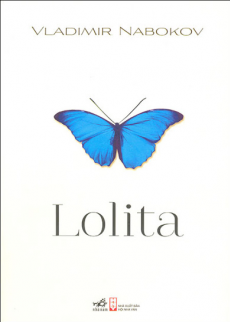
Email: reecejordan98@hotmail.co.uk
Total Article : 168
About Me:18-year-old sixth form student, studying English Literature, History and Government and Politics. My articles will broadly cover topics from the current affairs of politics to reviews of books and albums, as well as adding my own creative pieces, whether it be short fiction or general opinion.

“Lolita, light of my life, fire of my loins. My sin, my soul. Lo-lee-ta:
the tip of the tongue taking a trip of three steps down the palate to tap,
at three, on the teeth. Lo. Lee. Ta.
She was Lo, plain Lo, in the morning, standing four feet ten in one
sock. She was Lola in slacks. She was Dolly at school. She was Dolores on
the dotted line. But in my arms she was always Lolita.”
Such is the infamous beginning of Vladimir Nabokov’s most notorious novel, Lolita. You’d be forgiven for believing all the hushed and clandestine whispers upon reading such a paragraph so seeping with phonological devices; that this is a very sensual novel – perhaps too sensual. And it is partly true, this is a very sensual novel, but never too sensual. As John Ray Jr., the fictitious editor of Nabokov’s creation who pens the ‘Foreword’ to Humbert Humbert’s ‘tragic tale’, states – “not an obscene remark is made”.
The plot is rather simple – a middle-aged French man travels to America for work and becomes engaged in a sexual relationship with a little girl of the age of twelve until she is fifteen. This is the reason as to why the novel has gained such a repellent reputation, a consensual repulsion of its subject matter. Indeed, this kind of reputation was one predicted by a plethora of publishers when Nabokov was seeking to get the novel in print. It was deemed as pornography, which, as Nabokov was aware, connoted mediocrity. For a very recent example of case and point, look at any random page of the Fifty Shades of Grey series – a collection of vilely written books that seek to merely imitate pornography on the page. Where Lolita differs is that Nabokov has Humbert Humbert mist his sexual deviance behind beautiful poeticism and manipulation of language. Indeed, some have argued that the most sensual part of the novel is the intoxication of Humbert’s use of language. He is never overt with his and Lolita’s intercourse but instead gives it to us in metaphors abstract minutiae. By doing this, Nabokov has us under Humbert’s spell: we become desensitised to his actions and instead start sympathising and empathising with him. Is this Nabokov’s attempt at making us distance ourselves from the conventional view towards paedophilia, that being one of disgust and ‘moral leprosy’? It’s plausible, but I doubt. Instead it seems that he seeks to illustrate the human susceptibility to language and manipulation, that even our most entrenched moral standings can be altered by the power of language.
There have been attempts to adapt Nabokov’s novel into the big screen and no matter how many good reviews these two may receive, both of them completely and dismally pale in comparison to the novel. This is because Lolita can only be conveyed properly through the art medium of literature. We can only fully appreciate the intricate and ingenious plot twists and turns, the partisan nature of fate, the incompatibility of reality and illusion and the full emersion of Humbert’s vision through the novel form.
Image Credits: vivubooks.com

0 Comment:
Be the first one to comment on this article.